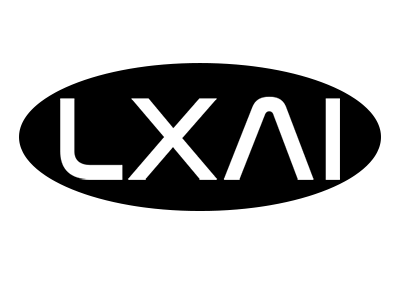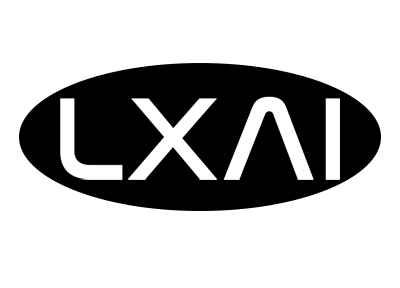LatinX in AI Research at NeurIPS 2024
The 7th Annual Latinx in AI Research workshop was held on December 10th, 2024, as a part of the Thirty-eighth annual Neural Information Processing Systems conference, held Monday Dec 9th through Sunday Dec 15th, 2024 at the Vancouver Convention Center.
The Latinx in A Research Workshop will take place at West - Meeting Room 202-20 at the Vancouver Convention Center.
The workshop will embrace an hybrid format, welcoming attendees both onsite and virtually.
Final Program
| Start | End | Activity |
|---|---|---|
| 8:30 | 9:00 | Check-in |
| 9:00 | 9:10 | Opening remarks |
| 9:10 | 9:20 | Oral 1 A Kernel Two-Sample Test with the Representation Jensen-Shannon Divergence |
| 9:20 | 9:30 | Oral 2 Hyphatia: a Card-Not-Present Fraud Detection System based on Self-Supervised Tabular Learning |
| 9:30 | 9:40 | *Oral 3 A Hybrid COMTE-LEFTIST Time-Series Explanation Method For a Time-series Classification Bitcoin Recommendation System |
| 9:40 | 9:50 | Coffee break |
| 9:50 | 10:30 | Keynote 1 Breaking Barriers: From a primary school classroom in South America to a top 10 University Worldwide by Jesus Solano |
| 10:30 | 11:20 | Platinum Sponsor |
| 11:20 | 12:00 | Keynote 2 From MVP to Production - Scaling and Deploying Generative AI by Melissa Montes |
| 12:00 | 13:20 | Lunch | Sponsor Booths |
| 13:20 | 14:00 | Keynote 3 Paula Ramos |
| 14:00 | 14:10 | Oral 4 TudoBonus: A Dataset for household appliance recognition to improve circular economy process |
| 14:10 | 14:20 | Oral 5 Anomaly Detection In The Wild: Can SSL Handle Strong Distribution Imbalances? |
| 14:20 | 14:30 | Oral 6 SignAttention: On the Interpretability of Transformer Models for Sign Language Translation |
| 14:30 | 15:10 | Keynote 4 DNA-Diffusion: Leveraging Generative Models for Controlling Chromatin Accessibility and Gene Expression via Synthetic Regulatory Elements by Luca Pinello |
| 15:10 | 16:00 | General sponsor panel | Mentoring Hour |
| 16:00 | 16:15 | Closing remarks |
| 16:15 | 16:30 | Coffee break |
| Networking | ||
| 18:00 | 19:30 | Join Poster Session |

Keynote Speakers
Social Events
Important Dates
Program Committee Application Deadline (Application form) -
Paper Submission Deadline (Submission website) -
Program Committee Application Acceptance Notification -
Registration & Travel Grant Application Deadline (Application form) -
Volunteering Application New Deadline (Application form) -
Paper Submission Acceptance Notification -
Registration & Travel Grant Acceptance Notification -
Volunteering Application Acceptance Notification -
Paper Final Manuscript Submission Deadline -
Workshop Day - December 10th, 2024 at West - Meeting Room 202-204
Special Thanks to This Years REVIEWERS.
| Abhay Dutt Paroha | Abhishek Sahadev Sutar | Aditya Vikram |
| Akash Abaji Kadam | Akash Mukherjee | Alban Zammit |
| Aman Maldar | Ameya Wagh | Amit Agarwal |
| Anmol Sharan Nagi | ARIANA DEL PILAR | Arun Sethupat Radhakrishna |
| Aryan Sinha | Benjamin Bortey Borketey | Bhargava Kumar |
| Carlos Alberto Miranda | Charan akiri | Claudio Rogerio Gomes da Silva |
| Dennis Núñez | Diego Porres | Eric Borba |
| Felipe Lopes | Felipe Maia Polo | Felipe de Andrade de Oliveira Bezerra |
| Flávio Santos | Flavio Figueiredo | Gaurav Sharma |
| Hassan El Alami | Henry O. Velesaca | Hooman Razavi |
| Isai Ramirez | Ivan Dario Arraut Guerrero | Ivan Venzor |
| Javier Orduz | Jiajing Chen | Jianbo Wu |
| Jingxiao Tian | Jhoan Keider Hoyos | Johnattan Douglas Ferreira Viana |
| Jorge Ramírez | Jose Cordova-Garcia | José Gabriel P. Tavares |
| Josue Genaro Almaraz-Rivera | Julekha Khatun | Juan Cardenas-Cartagena |
| Juan Ramirez | Julian Collado | Kartik Singhal |
| Lakshmithejaswi Narasannagari | Leo Thomas Ramos | Luiz Francisco Martins Bentes |
| Luiz Guilherme Zanini | Matias Valdenegro-Toro | MAYNARA DONATO DE SOUZA |
| Meetu Malhotra | Michael Oliveira da Cruz | Mouxiao Huang |
| Naveen Marri | Nico Cavalcanti Jr | Nuwan Sriyantha Bandara |
| Paritosh Dinesh Katre | Paula Feldman | Paula Ramos-Giraldo |
| Prince Mireku | Priyaranjan Pattnayak | Rahul Deo Vishwakarma |
| Rahul Sunil Bhalerao | Ravi Malhotra | Rohit Ganji |
| Roy Marco Yali Samaniego | SAURABH KUMAR | Sai Kumar Arava |
| Sakshi Choudhary | Sanjay Kumar Lalta Prasad Vishwakarma | Senthilkumar Sakthivel |
| Shradha Agrawal | Shuvodeep De | Sina Baghbanijam |
| SOLAYMAN HOSSAIN EMON | Songlin Jiang | Swagata Ashwani |
| Swapnil Patil | Venkata Jaya Shankar Ashish Peruri | Vinod Goje |
| Virender Dhiman | Walter P. Casas | Weisi Liu |
| Willian Oliveira | Xavier Sumba | Xintao Li |
| Youwei Yu | Yupei Liu | Yulai Zhao |
| Yuxin Qiao | Zhizhong Wu | Ziyi Zhu |
| Zixuan Wang |
Submissions
Overview
We strongly encourage students, post-docs, and researchers who primarily identify as Latinx in all areas of Artificial Intelligence and Machine Learning to submit a paper describing new research. We welcome paper submissions in theory, methodology, and applications. We also welcome papers currently under preparation or submitted for review elsewhere, as the purpose of this workshop is to disseminate LatinX in AI work within the broader community. Please note that papers do not necessarily have to be published exclusively in Latinx organizations; you are free to publish elsewhere if you choose not to archive with us.
While the presenting author need not be the first author of the work, we encourage authors to highlight the contribution of Latinx individuals — particularly the presenting author. While the event focuses primarily on researchers who identify as Latinx, everyone is invited to attend. Authors are also encouraged to sign up to review for LXAI, with a sign-up option available upon submission.
Authors of accepted papers will be asked to present their work in a poster session. A set of selected papers will be chosen to give 5–15 minute oral and spotlight presentations. All accepted paper submissions will be published as workshop proceedings by LatinX in AI (LXAI) Research.
Scope and Topics:
Computer vision
Deep learning
Knowledge reasoning
Machine learning
Multi-agent systems
Natural language processing
Statistical reasoning
Theory
Robotics
Reinforcement Learning
Generative AI
Large Language Models (LLMs)
Meta-Learning, one-shot, and few-shot learning
Applications of AI to specific domains
AI fairness
AI ethics
AI limitations and challenges
Machine learning Systems
Neuroscience
ps: Topics that were not mentioned on this previous list can also be considered.
Guidelines
This year we are using OpenReview to manage submissions and the corresponding peer-review process by our program committee. All submissions must be made in the double-blind format (that is, the identity or institution of the authors should not be revealed in any way in the manuscript). For the LatinX in AI (LXAI) Research Workshop @ NeurIPS 2024 we are accepting two kinds of submissions:
Full-papers: 4 to 8 pages excluding references. We allow supplementary material in another file. Accepted papers of this kind will be part of the official NeurIPS workshop proceedings and will be presented in the workshop. Note that these papers are expected to present novel research. If the length of the paper is less than 4 pages, it automatically will be considered as a short paper.
Short-papers: Up to 4 pages excluding references. No supplementary material will be allowed. They can present work in progress, exploratory/preliminary research or already published work, or any relevant artificial intelligence applications for Latin America.
Appendix: In full papers, your submission may contain an appendix with a maximum of 3 pages. You may use this appendix to include details on your experimental setups, complementary results, additional theorem proofs, etc. Please note that reviewers are not required to read the appendix sections. Thus, the main content of your submission should remain mostly self-contained.
Style: Papers must follow the guidelines provided by the NeurIPS 2024 Latex Style Template. Submissions should state the research problem, motivation, and technical contribution. All submissions must be in English. The paper should be sent in a single PDF file (including references). Additional material can be included in a separate file.
(Optional) Source code: We encourage authors of accepted submissions to provide a link to their source code. To maintain a double-blind review process, you will be allowed to submit or link your code in the camera-ready stage.
Desk rejection: Submissions that do not follow the length or style requirements above shall be automatically rejected without consideration of their merits.
Submission of a paper should be regarded as an undertaking that if the paper should be accepted, at least one of the authors needs to register for the conference and present the work.
Submit your paper(s) in PDF format at the submission site:
https://openreview.net/group?id=NeurIPS.cc/2024/Workshop/LXAI
*The submission deadline is now on October 4th Anywhere on Earth.
Policies
Submissions will be peer-reviewed by at least 2 reviewers in the area. Must be blind for the double-blind review process. Specifically, we allow two types of submissions: archival and non-archival.
Archival: Accepted works will be published in the Journal of LatinX in AI Research as proceedings. See JLXAIR open-access copyright guidelines.
Non-archival: Authors may choose to opt out of our official publication process. In this case, the work will still be listed as presented at this workshop but not listed in our official proceedings or issued a DOI for citation tracking purposes.
Accepted Papers
Presenters
Posters Guidelines
For this year’s event, the size of the poster should be 24 inches (wide) by 36 inches (height), i.e., in portrait mode. Each poster should include the LXAI and NeurIPS logos. Additional instructions can be found in the shared website https://wiki.eventhosts.cc/reference/physical-poster-presenter-instructions, but please note that that we will be able to provide poster boards.
The logos can be found following this link: LXAI and NeurIPS logos.
Visa Information
For attendees traveling to NeurIPS 2024 in Vancouver, Canada, here’s what you need to know about visa requirements:
Most international attendees will either need a “Temporary Resident Visa (TRV)” or an “Electronic Travel Authorization (eTA)” depending on their country of origin. Citizens of visa-exempt countries, such as many European and Commonwealth nations, will require an eTA, while those from non-exempt countries will need a TRV. To determine whether you need a visa or an eTA, you can visit Canada’s immigration site.
If you require a visa, it’s advised to start the application process as early as possible. You’ll need documents such as a valid passport, proof of funds, a travel itinerary, and a letter of invitation from the conference. The processing times can vary, so applying well in advance of the conference date is crucial. You can find more details on the Canadian government’s website or the NeurIPS Visa site’s section.
Be aware that U.S. citizens generally don’t need a visa or eTA, but permanent residents of the U.S. must bring both their passport and proof of residency. For more detailed guidance and visa application forms, visit the official Immigration, Refugees, and Citizenship Canada and/or contact our Visa Chairs Ms. Karla Caballero and Mr. Abel Reyes.
| Title | Authors |
|---|---|
| Anomaly Detection in Industry 4.0: Supervised vs. Semi-supervised Approaches with OPC-UA integration | Henry O. Velesaca |
| SignAttention: On the Interpretability of Transformer Models for Sign Language Translation | Enzo Ferrante, Facundo Manuel Quiroga, Oscar Agustín Stanchi, Pedro Alejandro Dal Bianco |
| Improving Wild Pig Detection through Data Augmentation and Thermal Imagery | Alhim Adonai Vera Gonzalez, Donghoon Kim |
| A Hybrid COMTE-LEFTIST Time-Series Explanation Method for Bitcoin Recommendation System | Lucas Rabelo de Araujo Morais, Teresa Ludermir |
| Enhancing Medical NLP Systems | Binxi Xie |
| Keep on Swimming | Julian Collado, Kevin Matthew Stangl |
| OPPI-GRF: Optimizing Protein-Protein Interaction Prediction | Anusuya Krishnan, Isaias Mehari Ghebrehiwet |
| Enhancing the Generation of Predictions and Explanations | Mardhiyah Sanni, Oana-Maria Camburu, Jesús Solano, Pasquale Minervini |
| Training-Free Approach of Convolutional Neural Networks with Astrocyte-Inspired Architectures | Ana Ribas-Rodriguez, Vanessa Aguiar-Pulido |
| Learning to Route for Dynamic Adapter Composition in Continual Learning | Marie-Francine Moens, Tinne Tuytelaars, Vladimir Araujo |
| Modeling Cognitive Processes of Natural Reading | Bruno Bianchi, Fermín Travi, Juan E. Kamienkowski |
| A Proposal for Post-OCR Spelling Correction using Language Models | Cleber Zanchettin, Sávio Santos de Araújo |
| Morphological Typology as a Determinant in BPE Subword Productivity | Iñigo Parra |
| Subnormal Number Attacks on Binarized Neural Networks | Nicolás Berrios |
| Health Prediction: A Comprehensive IoT-Driven Health Monitoring System | Pedro Pedrosa Rebouças Filho, Suane Pires Pinheiro da Silva, Marcelo Colares da Silva |
| Evaluating Federated Kolmogorov-Arnold Networks on Non-IID Data | Arthur M. Sasse, Claudio Miceli de Farias |
| Benchmarking CNN-Based Systems for Corn Leaf Pest Detection | Mariana Risco Cosavalente |
| FC-Aligner: A Lightweight Regressor Model for Embedding Space Conversion | André Luiz Buarque Vieira e Silva, Gustavo Zanoni Felipe, René G. Ferrari, Álvaro Spies Nolibos |
| Incremental Learning Approach using Fuzzy Logic | Livia de Souza Alexandre |
| A Kernel Two-Sample Test with the Representation Jensen-Shannon Divergence | Jhoan Keider Hoyos, Luis Gonzalo Sanchez |
| Evaluating the Usefulness of Large Language Models for Synthetic Samples | Cleber Zanchettin, Flávio Santos, Maynara Donato de Souza |
| Towards unearthing neglected climate innovative solutions using an LLM-based search tool | Cesar Quilodran |
| Towards Kinetic Manipulation of the Latent Space | Diego Porres |
| Deep Learning as a Decision Financial Tool in the Oil and Gas Industry | Aguinaldo Junio Flor |
| TudoBonus: A Dataset for household appliance recognition to improve circular economy process | Flávio Santos |
| On Divergence Measures for Training GFlowNets | Diego Mesquita, Eliezer de Souza da Silva, Tiago Silva |
| Identification of Antigen Specific B-cell receptors from single-cell V(D)J sequences using a Large Language Model, ASPred | Animesh Ray, Karen Paco, Matthew Sazinsky, Stefano Lonardi, Mariana Paco Mendivil, Zihao Zhang |
| Interpreting business process case outcome prediction with XAI | Ana Rocío Cárdenas Maita |
| Generative Interpolation of Sign Language Poses using RVQ-VAE | Fidel Omar Tito Cruz, Gissella Bejarano |
| Evaluating Privacy Risks in Synthetic Clinical Text Generation in Spanish | Federico Olmedo, Felix Melo, Jocelyn Dunstan, Luis Miranda, Matías Toro |
| Distilling Visual Information into Symbolic Representations through Self-Supervised Learning | Ivan Vladimir Meza Ruiz, Victor Sebastian Martinez Pozos |
| Anomaly Detection In The Wild: Can SSL Handle Strong Distribution Imbalances? | Rafael Mateus, Randall Balestriero, Daniel Otero Gomez |
| Visualizing Linear RNNs Through Unrolling | Ahmed Imtiaz Humayun, CJ Barberan, Josue Casco-Rodriguez, Randall Balestriero, Baraniuk R., Tyler Burley |
| Adaptive LoRA Merging for Efficient Domain Incremental Learning | Eric Nuertey Coleman, Julio Hurtado, Luigi Quarantiello, Vincenzo Lomonaco |
| Testing Memory Capabilities in Large Language Models with the Sequential Ordered Recall Task | Alexander Huth, Jianing Mu, Mathis Pink, Qinyuan Wu, Sebastian Michelmann, Uri Hasson, Javier Turek, Kenneth Norman, Mariya K Toneva, Vy A Vo |
| Optimizing the Gabriel graph construction algorithm | Jose Geraldo Fernandes |
| Hyphatia: a Card-Not-Present Fraud Detection System based on Self-Supervised Tabular Learning | Jose Antonio Cantoral-Ceballos, Josue Genaro Almaraz-Rivera |
| Enhancing Graph-to-Text Systems in Low-Resource Settings: Distilling Chain-Of-Thought Reasoning For Task-Specific Workflows | Anna Kiepura, Arnisa Fazla, David Guzman Piedrahita |
| Human-Aided Discovery of Ancestral Graphs | Adele H Ribeiro, António Góis, Diego Mesquita, Eliezer de Souza da Silva, Samuel Kaski, Tiago Silva |
| User-Centered Feature Fusion | Marleny Hilasaca |
| Hand Gesture Classification Using Kolmogorov–Arnold Networks (KAN) | Edson Francisco Luque |
| Rethinking Multi-Modal Tokenization for Reinforcement Learning with Transformers in Mobility-on-Demand Tasks | Gabriel Schwartz, Raphael Yokoingawa de Camargo |
| Collaborative Training | Ariana Mirella Villegas Suárez |
Mentoring Program
LatinX in AI is hosting a new mentoring program alongside our official workshops. The LatinX in AI Mentoring Program requires mentors and mentees to meet once a month. The program for this cohort has begun, but we continue to accept applications throughout the year. Thank you for your interest!
Deadline to apply to mentorship program: Sep 20, 2024
LatinX in AI Workshop Sponsors
We would like to thank the following sponsors for their contributions towards making the LatinX in AI Workshop at NeurIPS 2024 possible. For sponsorship opportunities, please contact us at: sponsor@latinxinai.org.
PLATINUM
ZINC
NICKEL
BRONZE
Organizing Committee
General Chairs — Ana Maria Quintero Ossa (Nu Bank), Daniel Otero (Exit83 Consulting)
Mentorship Chairs — Josimar Chire (Research4tech/Instituto Federal de Goias), Vladimir Araujo (Sailplane AI)
Presentation Chairs — Jose Antonio Cantoral Ceballos (Tecnologico de Monterrey), Rafael Mateus Carrion (Exit83 Consulting)
Program Chairs — Cleber Zanchettin (Federal University of Pernambuco/Northwestern University), Felipe Leno da Silva (Lawrence Livermore National Lab), Lesly Miculicich (Google)
Public Relations Chairs — Heitor Rapela Medeiros (ETS Montreal), Rosa Yuliana Gabriela Paccotacya Yanque (Universidad Católica San Pablo), Yaro Celis (YCO Productions)
Social Chairs — Isabel Metzger (NYU), Juan Camilo Ramirez De Los Rios (University of Montreal/Mila)
Sponsor & Finance Chairs — Javier Turek (Intel), Juan Guillermo León Cagüeñas (Nu Bank), Manuel Ignacio Pérez Carrasco (Centro de datos e Inteligencia Artificial, Universidad de Concepción)
Visa Chairs — Abel Andres Reyes-Angulo (Michigan Technological University), Karla Caballero (Sirius XM)
Volunteer Chairs — Albert Manuel Orozco Camacho (Concordia University/Mila - Québec AI Institute), Ignacio Gabriel Bugueno-Cordova (University of Chile/University of O'Higgins)
















